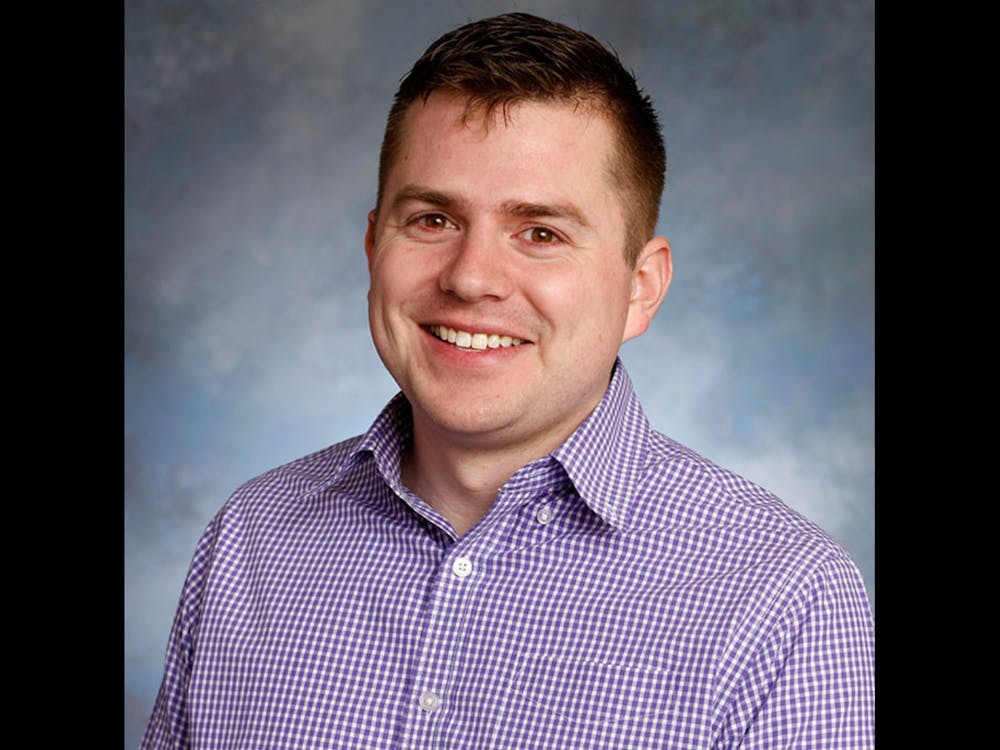Recent events at UP have made me think about the Cross. What does the story of Jesus’s execution teach me about how Catholics (especially straight Catholics who hold positions of authority in Catholic institutions) should relate to the Queer community? A recent Beacon article covering a protest of Fr. Dan Parrish was accompanied by a beautiful sign that read, “Jesus Loved Everyone. Why can’t Catholics?” Of course, many Catholics who read that sign will be moved to quickly and emphatically respond, “We do love you!” Many of those same Catholics might also feel hurt and even anger at the accusation that we do not love the members of the Queer community. As we are protested, either directly or indirectly, it is easy to feel misunderstood by the Queer community, frustrated that they seemingly ignore remarks about loving them as God’s children and instead attack or ostracize us precisely for our Catholic beliefs. Years ago, I felt many of those same feelings, and I want to offer this Good Friday reflection specifically for those people who may be feeling that pain and anger.
When Catholics feel attacked for what we believe are our faithful convictions, a common, yet harmful narrative can easily begin to creep in. We may be told that we are experiencing the painful fruits of our prophetic witness. We may be told that this derision and public ridicule is our own form of crucifixion, our Cross to bear. We may be told that we should identify with scripture passages like Matthew 5:11-12 “Blessed are you when people revile you and persecute you and utter all kinds of evil against you falsely on my account. Rejoice and be glad, for your reward is great in heaven, for in the same way they persecuted the prophets who were before you.” We may be told to adopt the prayer of Jesus, uttered from the Cross: “Father, forgive them; for they do not know what they are doing.” Above all, we will be encouraged to continue to love those who revile us.
I want to suggest that all these messages are dangerous and tend to perpetuate a form of systemic violence. Everyone of the sentiments listed above presumes that powerful Catholics (especially ordained ministers) should begin by identifying themselves with Jesus, especially the suffering Jesus who quietly bears his pain out of love. The problem, however, is that these sentiments assume that we already know how to love; we simply need to courageously persist.
Good Friday offers us an opportunity to listen to the story of Jesus’s Cross in a way that challenges these triumphalist assumptions. One of the central messages of Good Friday is that, long before we can begin to see ourselves as Jesus, we must first learn to see ourselves as the crucifiers. To that end, I would suggest that we focus our attention on the role of the centurions in the Gospels of Matthew, Mark, and Luke. In all these Gospels, the centurion is a figure who, having just murdered Jesus, comes to the horrifying realization that they have not only killed an innocent person, but they have killed the Son of God.
My favorite version of this story is found in the Gospel of Matthew. In this gospel, the moment of Jesus’s death is accompanied by terrifying darkness and earthquakes. Filled with fear, the centurions say, “Truly, this man was God’s son!” God literally shakes the centurions out of their ignorance, giving them the gift of knowing their own sin. When crucifying Jesus, the centurions undoubtedly believed they were doing what was right. They were convinced of their righteousness. Often it takes the experience of darkness and terror to make us see that our own violence and its victims are staring us straight in the face. I would encourage all Catholics who feel misunderstood, ostracized, and attacked by the Queer community to consider the possibility that the derision and anger we are experiencing may be the darkness and the earthquakes we have earned. We should consider the possibility that God is calling us to conversion.
Truly considering this possibility involves a willingness to see that anger as grace. So, when administrators encourage the UP community all to remain positive, to be respectful, and to avoid sowing division, that request could be interpreted as tantamount to chastising God for the darkness and the earthquakes, or critiquing Jesus for cleansing the Temple. The anger of the Queer community is a grace-filled, divine instrument. The question for Catholics is: do we have the competence to see our sin? Without this competence, any courageous acts of ministry run the risk of simply continuing the crucifixion.
On Good Friday, of all days, we should stop trying to unite our suffering to Jesus’s suffering and instead be willing to recognize that our violence is united to the violence of the centurion. Perhaps then, like the centurion, we can begin to recognize the presence of Christ in the Queer community where we have been so consistently denying it. Perhaps then, we will have the competence to see the beauty and dignity of the queer love that we have been crucifying. We can instead unite our voice with the centurion’s voice and say, “Truly, these are the children of God.”
While the preceding message is intended primarily for Catholics, I want to close with a note of acknowledgment and apology specifically to the Catholic and non-Catholic, Queer community at UP. As is the case with my participation in all systemic violence, I am trying to better understand the depth and severity of the trauma and harm that Catholic institutions have inflicted and continue to inflict on your community. When you repeatedly say you do not feel safe, I deeply believe you, as do many of my colleagues here at UP. I will be working to follow the lead of your community in the fight for the justice and inclusion you deserve.
David Turnbloom is a professor at the University of Portland. He can be reached at turnbloo@up.edu.
Have something to say about this? We’re dedicated to publishing a wide variety of viewpoints, and we’d like to hear from you. Voice your opinion in The Beacon.








